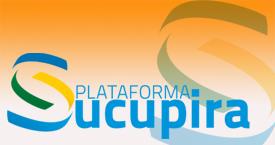Vol. 3 (2020)

The year 2020 enters history as one in which a pathogen agent invisible to the naked eye places the preservation of the human species conditioned to political decisions and private behaviors that are based on solidarity and empathy. The unprecedented technological advance, which occurred with the informational revolution established after the advent of the Internet, although it was already transforming the means of production (see the so-called Industry 4.0) and intersubjective relations, paradoxically, on the one hand, facilitated the hyperdissemination of the new Coronavirus on a global scale, through the wide and diffuse network of intra- and inter-frontier mobility, and, on the other hand, is being fundamental to the advent of strategies for tracking, control and innovation in terms of treatment and immunization.
This unprecedented health crisis has attacked the capitalist mode of production at its core, by making it difficult or even interrupting the expenditure of the labor force within productive processes of different natures, forcing new forms of labor to be adopted, many of which are mediated by technological alternatives whose implementation has accelerated.
As it could not be otherwise, the state of affairs posed emergency regulations, which, in the field of labor, sought to pave the way for the resumption of productivity, despite the unexpected and little controlled risks to human existence.
In addition, the Covid-19 pandemic also left even more to show structural inequalities of an economic and cultural nature and previous crises of the representative political system, proving that Coronavirus is not a democratic agent, either in the sense of the consequences experienced by the people or in relation to its potential to unite political and ideological currents due to the urgency of preserving life. The millions of Covid-19 deaths experienced on the planet are the lamentable portrait of a global management of the pandemic that can be classified as ineffective, to say the least.
In this environment, labor relations and labor law have experienced complex situations of challenges, setbacks and achievements that should be better examined over time, but which, above all, demonstrate the permanence of the centrality of living work for the prevailing societal model and, even more, for the maintenance of the reproduction of human life.
In this scenario, despite the serious difficulties imposed, the entire team of the Labor and Human Development Law Jornal has remained firm in its intention to offer a qualified, plural and interdisciplinary scientific space for reflections on the world of work, striving to ensure that the historical exceptionality in progress does not impede the continuity of the fulfillment of this mission. In fact, it was understood that, without prejudice to the continuous flow of articles, the spirits should be redoubled in order to contribute to the thinking of the work in a pandemic context, which is proposed with the edition of the Special Dossier Section "Covid-19 and the World of Work", brilliantly organized, at the invitation of Cristiano Paixão, research professor at the University of Brasilia and member of the Federal Labor Prosecution Office.
The closing of volume 3 of RJTDH in December 2020, first after the adoption of the continuous publication system (rolling pass), with the quality of the work and multiplicity of themes presented, comes to justify the choices and the sacrifices assumed.
Finally, RJTDH thanks, immensely, all the authors for believing in our publication vehicle and all the evaluators who have graciously spent their time and knowledge to build the volume that now presents itself to the public in its entirety.
The Editorial Team










